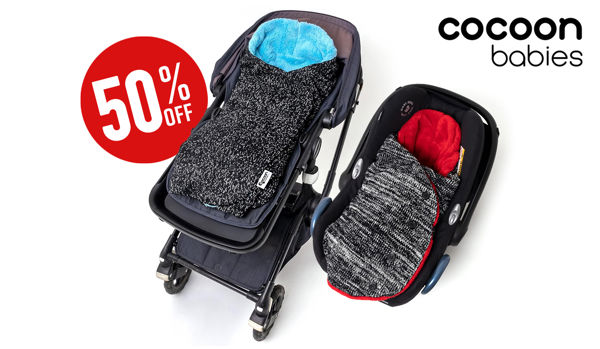When it’s time for your baby to have their injections, it can be an anxious time for the whole family. But making sure you know exactly what to do and how the situation happens will help resolve any worries you might have.
I’m going to explain what happens at the appointment what injections your baby will be given, and some tips for aftercare as well.
So What Happens First?
When your baby is coming up to eight weeks old, you should be asked in to your doctor surgery for them to have their first set of vaccinations.
These immunisations are very important because certain diseases can be serious if not protected against. Choosing to vaccinate your baby is essential to stop them contracting these listed diseases.
Your baby is given more than one dose of some immunisations; this is split up so as to prepare your baby’s immune system. By only exposing a baby once their immune system doesn’t always respond well enough, so triple injections are done over a period of time.
The immunisations are done in a set and then a booster is often required to ensure long term protection for your new baby.
What Immunisations Are Given at the Eight-Week Milestone?
The injections at eight weeks will be the 6-in-1 Vaccine, which includes Tetanus, Whooping Cough, Diphtheria, Polio, Hepatitis B and Haemophilus influenzae (type B [Hib]). As well as the MenB, which helps protect against meningitis and septicemia. And finally, the Rotavirus Vaccine will be administered for the first time at the eight-week mark as well.
During the Appointment
When your baby has their injections, the doctor will ask for the baby's legs to be bare, this is so that they can access the thighs. Most Doctors prefer to do the injections on the side of the thigh towards the top of the leg.
Your baby can sit on your lap, normally with their back up against your chest so that you can hold them firmly while the injections are administered. Some babies do cry and wriggle, but you should do your best to calm your little one by talking softly to them.
When I took my son for his immunisations, he had one injection in one leg and then two in the other leg. I was able to hold him close to my body and talk to him the whole way through to ensure he knew that I was there with him. I decided I would breastfeed him straight after the Doctor had finished because this was a comfort to him. Most babies will cry because it hurts their sensitive skin, and don’t be alarmed if a red lump appears soon after at the injection site.
Afterwards, I took my son back out into the waiting room and breastfed him there for around twenty minutes until he had calmed down. I then gave him a dose of baby paracetamol and made a note on my phone as to what time I administered that to him. You need to be keeping track of when you give your baby medicinal products so you know when they are able to have more later in the day. Always follow the guidelines on the packaging.
What Happens After?
If your baby wants to sleep more after just having their injections, then it’s fine to leave them to sleep a bit longer than you usually would, instead of waking them right away.
Just keep a close eye on them and do a temperature check regularly, too, anything over 38 degrees Celsius is classed as a fever and should be monitored. Start a piece of paper once you get home (or a note on your phone), write down the time of the injections, the time of medicine administered to the baby, and how long they nap and whether they are interested in a bottle or a breastfeed.
It’s important your little one doesn’t get dehydrated if the immunisations cause them to sleep a lot more. Usually, a baby is back to their normal rhythms within two to three days, with the injection site getting less red and less sore as time goes by too.
Can I Bathe My Baby After the Immunisations?
Yes, you can do a warm bath for your baby; your routines shouldn’t change because of the injections, even if the baby sleeps a little more.
Generally, if your baby does become calmer during a bath, then do what is right for you and continue with one at their usual time. Just take care not to press on the injection sites.
When To Worry About the Injection Site
At the injection site, it is normal for the skin of your baby to go red; a small lump might appear, too, and some babies will get a high temperature.
Make sure you have a baby-certified liquid paracetamol and a thermometer to hand. These are essential during these moments when your baby will be receiving many immunisations.
If you are concerned that the lump is getting very big, your baby develops a rash, or they start getting a very high fever, speak to your GP or out of hour’s service if it’s during the night.
Do You Have To Agree to Immunisation?
No, you don’t have to; however, your baby is put at a greater risk of catching a disease or bacteria-driven condition if you choose not to.
With the amount of travel abroad in the world to and from the UK, there is always a chance that rarer diseases might outbreak here, and the very young and very old will be more susceptible to contracting any germs. Some of these diseases that the UK (and much of the world) now vaccinate against can often kill a baby, so it is recommended that you accept the injections on behalf of your baby in order to help protect them.
Further Injections on Your Baby’s Milestone Chart
The 12-week Injections
At the second lot of vaccinations, your baby will receive the 6-in-1 vaccine again, as well as the Rotavirus. These second doses are vital to boosting your baby’s immunity. The third injection, this time, will be the Pneumococcal vaccine, which can help protect your child against meningitis caused by the bacteria pneumococcal.
The 16-week Injections
Once again, you will find a top-up of the 6-in-1 vaccine being administered to your baby, along with the MenB vaccine that was given at the 8-week immunisations.
What if My Baby Is Premature?
Your baby should still be vaccinated around eight weeks of age, even if they are born early. Premature babies are at more risk of contracting infections and should therefore be immunised at two months of age even if they spent time in hospital.
My Top Tips as a Parent During These Milestones
Getting supplies in at home before the date that your baby has their injections is a really good idea, these include a thermometer, baby paracetamol and some food supplies for the rest of the family.
If your little one is grumpy and wants to sleep more, possibly on you for comfort if they feel unwell, then you won’t want to leave the house during these couple of days.
Speaking from experience, you also need to keep a close eye on your baby as some can be drowsy after the injections and can get a fever, so you should always check their temperature every couple of hours and make a note of what it changes to. I recommend the type of digital thermometer that goes just inside the ear, too, for accuracy.
Staying calm with your baby might be a hard ask when you’re a new mum and you don’t want to see your baby hurting, but the injections are over very fast and your Doctor will reassure you with any questions you might have at the time of the appointment.
Talk to your baby, stroke them gently to calm them and hold them close during the immunisations.
You can breastfeed your baby after the appointment like I did with my son, if you’re feeding your baby yourself, this can act as pain relief as well as hydration and comfort for them.
Finally, be prepared to be at home for a few days, usually by day three, your baby will be feeling better. You may want to avoid any visitors or baby groups depending on how well your baby is, if they have a high fever, you may be better off staying at home.
If you are concerned at all, call your doctor or a local service. This includes if your baby develops a rash, has an allergic reaction to what they’ve been given, or the injection site begins to look too big or a nasty shade of red. Strong reactions are uncommon, but always trust your instincts and do what is best for your baby, you know them the best.







